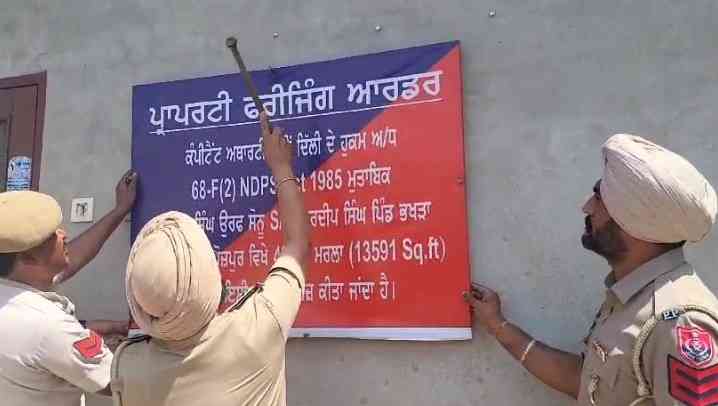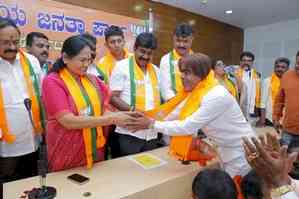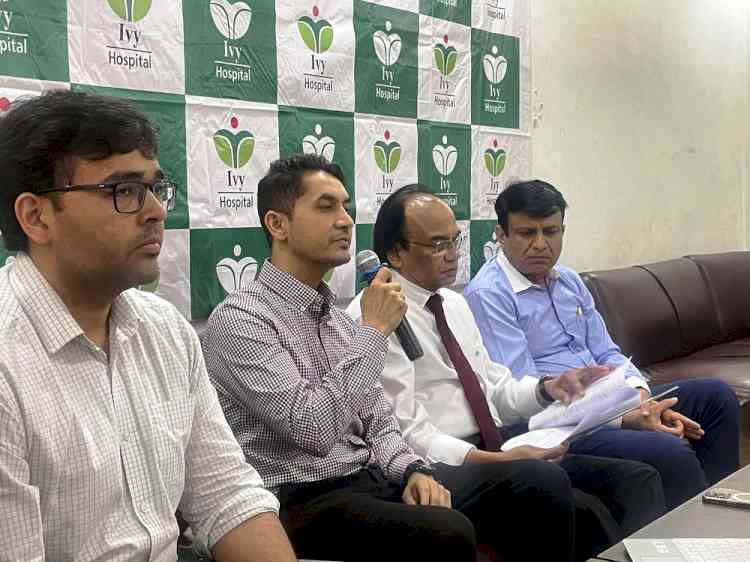3-day workshop held at Bhagtauna village near Jaitu
Author(s): City Air Newsphoto: city air news Jaitu: A three-day workshop was held at Bhagtauna village near Jaitu from Friday to Sunday on the value and importance of conserving traditional seed varieties. Organized by by Kheti Virasat...

photo: city air news
Jaitu: A three-day workshop was held at Bhagtauna village near Jaitu from Friday to Sunday on the value and importance of conserving traditional seed varieties. Organized by by Kheti Virasat Mission with the support of NABARD, the workshop provided training to practicing organic farmers in Punjab on livelihood enhancement through conservation, multiplication and marketing of traditional seeds.
With the prevalence of high-yielding hybrid and genetically modified seeds, traditional seeds that do not need to be purchased every year have been forgotten and the practice of saving one’s own seeds has lost favour among farmers. Expert speakers from around the country explained that hybrid seeds do increase yield but only if their recommended inputs of fertilisers and pesticides are added at the recommended time intervals. Thus they come with the burden of high cost on one side and on the other application of chemical inputs degrades soil fertility as well. Further, the resultant crop that is produced is also of low nutritional value. It was shown that in order to obtain the same amount of iron as contained in one apple over 50 years ago, one would have to consume 18 apples today.
“Crops grown organically from traditional seed varieties not just include higher nutritional content, they improve soil quality, require fewer external inputs, and their seeds can be saved for the next year”, said KVM founder Umendra Dutt. “There are additional benefits,” said Vinod Jyani of Jyani Natural Farm who converted all of his 130 acre holding into organic overnight eleven years ago after attending a KVM workshop. “My farm has turned into a model eco-tourism hotspot averaging 100 visitors a day,” he said.
Over 50 organic farmers who attended the workshop held at “Bhai Bhagtuana Girls College” learned techniques of seed production as well as indigenous practices and methodologies to conserve, multiply and market the traditional seed.
Experts including Mr. Sanjay Patil, from Pune Maharastra, Keshwan Murthi from Desi Seed Producer Co., Mr. Kamaljeet of Kisan Sanchar and Dr. Chandrashekhar from Regional Center of Organic Farming, Panchkula took the various topics during the workshop.
An exhibition was organised alongside the three-day workshop displaying over 220 traditional seed varieties of various grains, vegetables, pulses, oilseeds, sugarcane, millets from Punjab, Karnataka and Maharashtra. These included Bansi, a tall wheat variety, Chann, a variety of indigenous sugarcane with about half-inch thin stems, a high fibre variety of wheat and various varieties of maize from Maharashtra.
Practical field training was part of the workshop in which farmers visited farm of organic farmer Amarjit Sharma, backbone of KVM, who is famous for his knowledge and traditional wisdom and conserving more than 80 varieties of traditional seeds. After that another Seed farm of Kheti Virasat mission of Gora Singh (Chainal Village, Jaitu) in which KVM is running a seed saving project was shown.
Mr. Kamaljeet and Sanjay Patil shared various indigenous methods of seed and grain storage learnt from their experience with farmers, it was an interactive session. In the final planning session, the state was divided into six agro-climatic zones in which specific steps were decided to be undertaken in a given timeframe to conserve and multiply traditional seed. A second three-day workshop on the same topic will be organised from 26th-28th January next year to assess progress and determine future steps.
Kheti Virasat Mission organizes traditional seed exhibition
Imagine lobia beans as long as two feet, sugarcane whose juice can treat jaundice, wheat which is extremely high in fiber – a boon for people with diabetes and heart condition, a highly nutritious fodder variety that increases milk yield when fed to cattle, and a variety of red chili high in demand because of its sheen, large size, high yield, and an attractive selling price.
All of these were part of the display of over 160 varieties of Punjab’s traditional seeds of around 60 crops at an exhibition organized near Jaitu by Kheti Virasat Mission (KVM), a grassroots level organic farming organization
Umendra Dutt executive director of KVM, said traditional varieties of seeds are a virtual goldmine on which our farmers are sleeping and one they do not know exists. Unlike hybrid seeds, traditional and open pollinated seeds can be saved from fruit for sowing in next season thereby freeing farmer of reliance on market. This can lead to a lot of savings. Dutt gives an example – a kilogram of hybrid tomato seeds can cost tens of thousands of Rupees in market. But a single tomato plant can yield so many tomatoes that around 5000 seeds can be saved which are sufficient for sowing two acre of land.
Jagtar Singh Dhaliwal, Assistant Director, KVM is personally involved in seed conservation and displayed dozens of seed varieties at the exhibition that he has conserved. Among his collection of wheat varieties is Bansi - one of the oldest known varieties of the grain that is high in protein, Chawlikath – a long grain variety that is good for dalia preparation, Moondi – an awn-less tall variety with soft grains and white flour, C-306 – a six decade old variety that is protein rich and makes good roti, Raghuvanshi - long earhead variety developed by Prakash Singh Raghuvanshi of Varanasi that has large sized grains and gives good yield. Dhaliwal has also conserved two traditional varieties of Barley – dwarf and tall. The tall one can also be used for one-cut fodder and its flour can be mixed with wheat to make multi-grain flour.
Participants to the workshop appreciated and valued the selection of traditional seeds on display at the exhibition. Kamal Jeet of Honeybee network said he first saw Chann, a desi variety of sugarcane with an extremely thin stem, fifteen years ago at the house of a 92-year old man who still had all teeth intact in his mouth and had been sucking this sugarcane every morning. Its juice is said to be helpful for patients suffering from Jaundice. Other varieties of sugarcane on display were COJ-85 and COJ-89 both thick stemmed, good for juicing and making of jaggery.
Santosh Kumari of KVM leads a group of women engaged in seed conservation on a plot of land in Jaitu region. She displayed over 60 varieties of vegetables and other crops. Most prized among her collection is a variety of red chilli that her family procured from Ganganagar a few years ago. Its large size, shiny exterior, high yield and attractive market price makes the seed in high demand. She also has other chilli varities that are highly stringent. Other vegetable seeds in her collection

 cityairnews
cityairnews 















